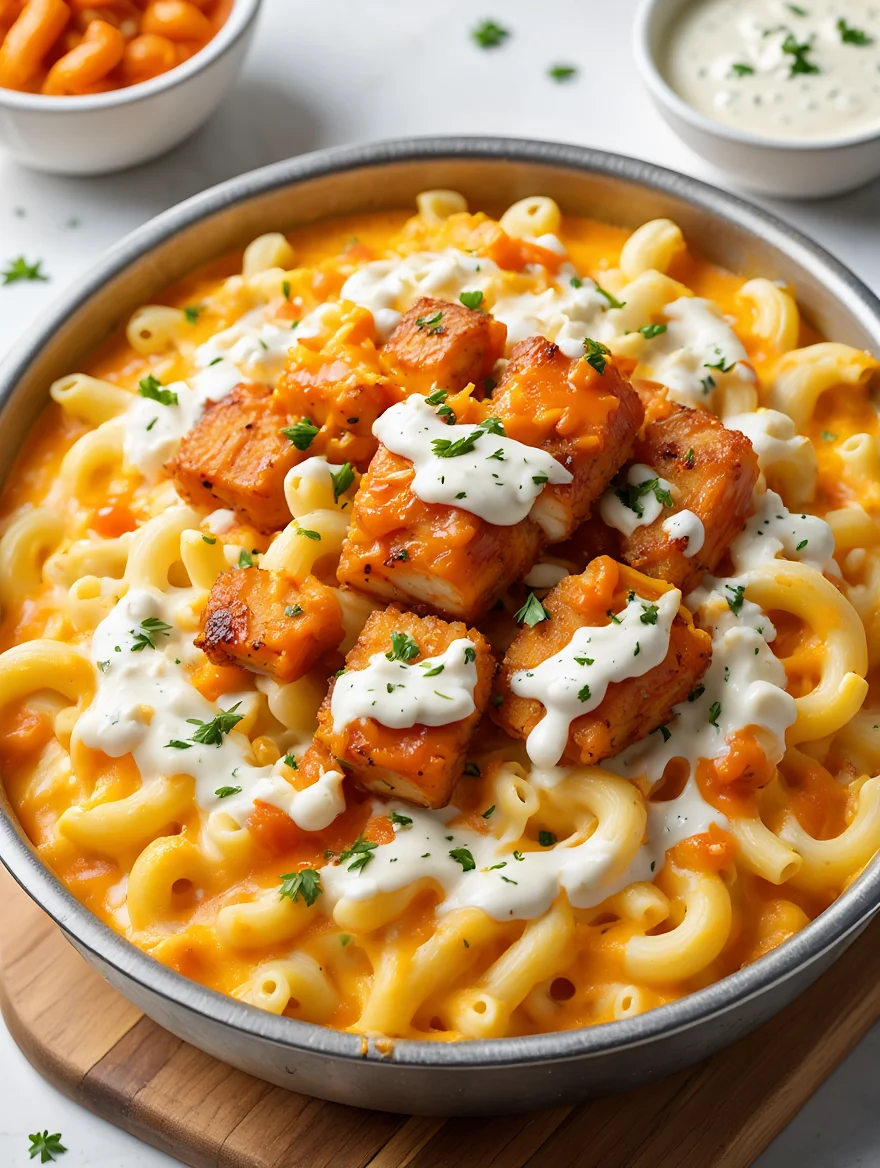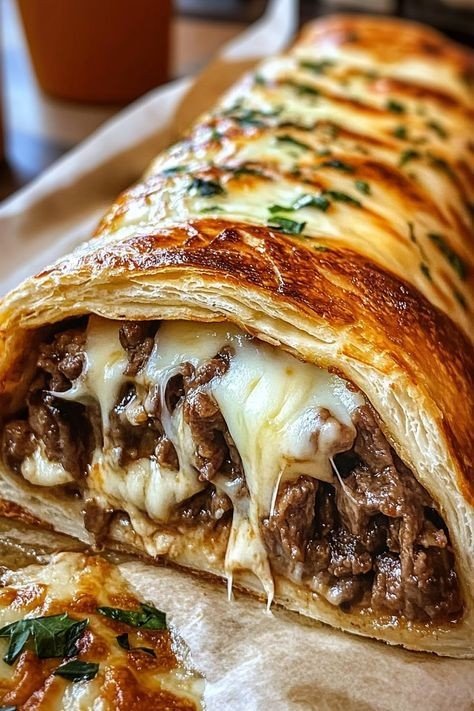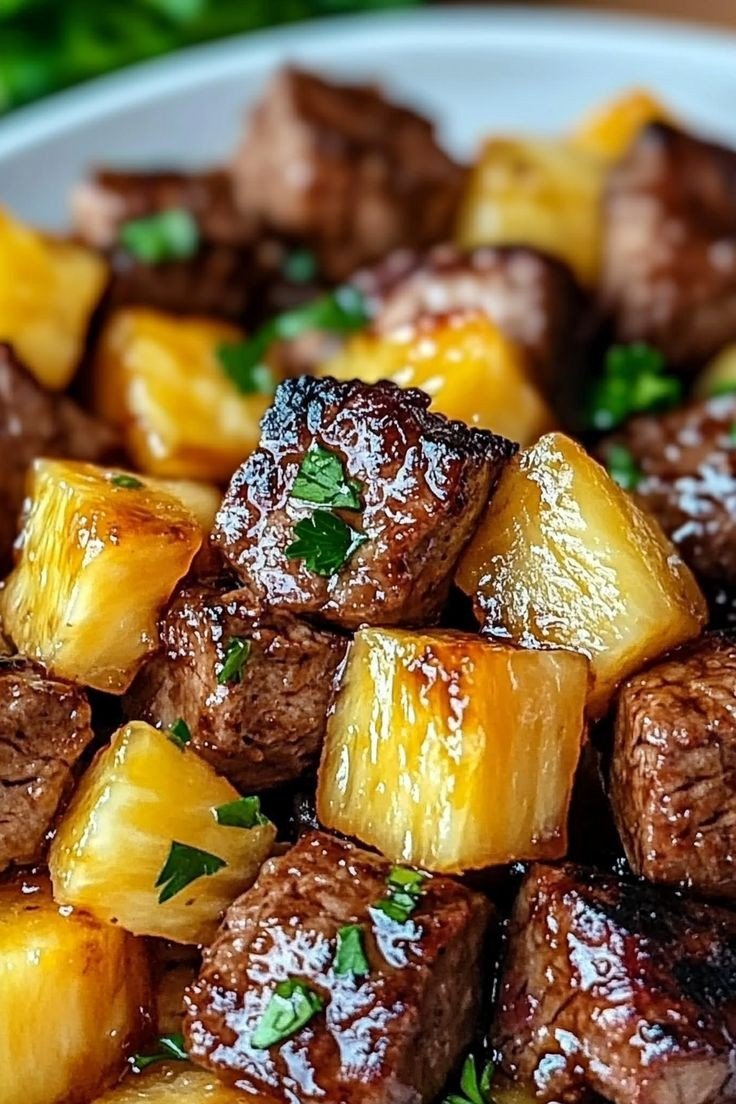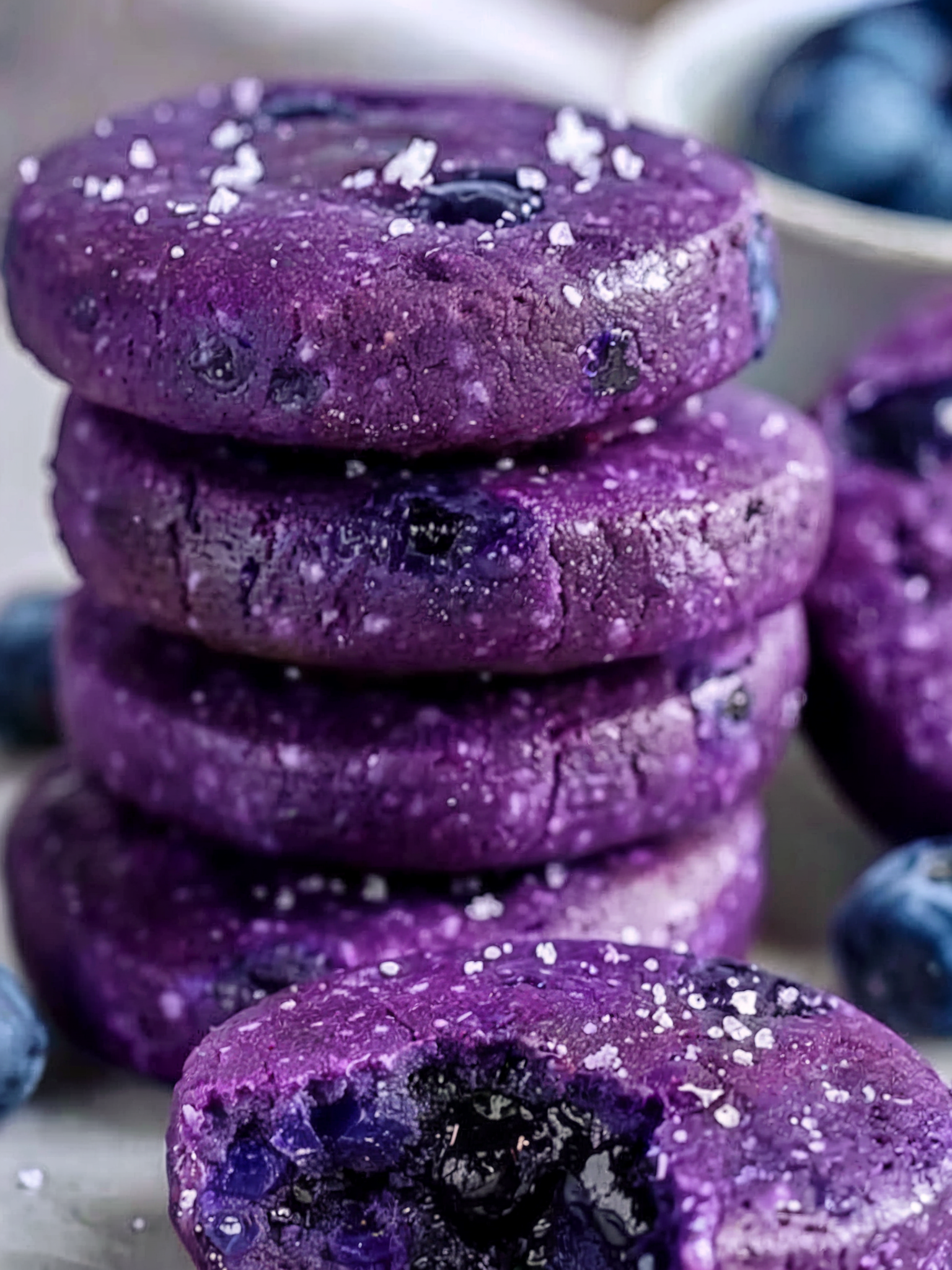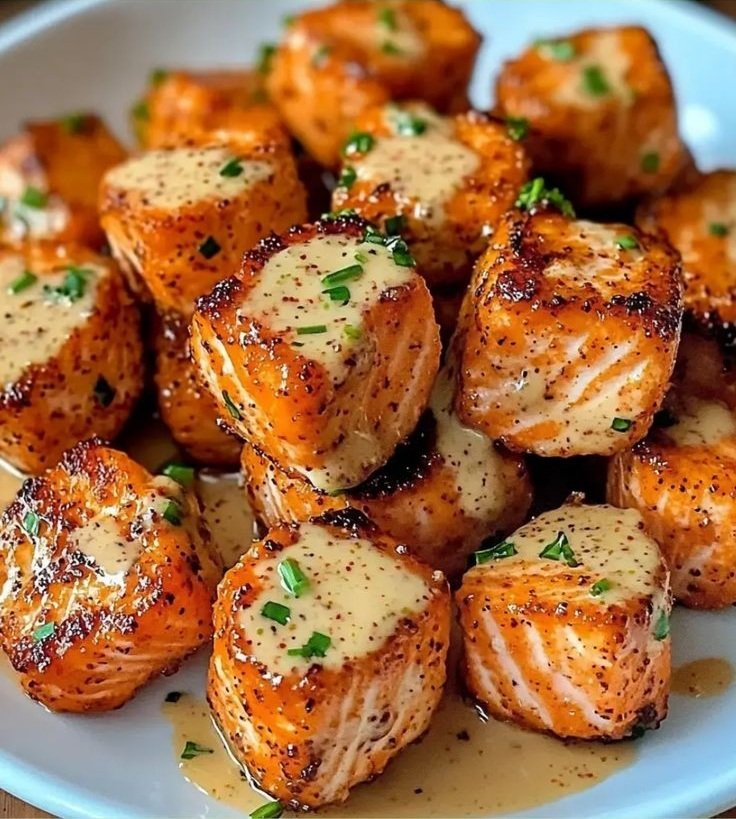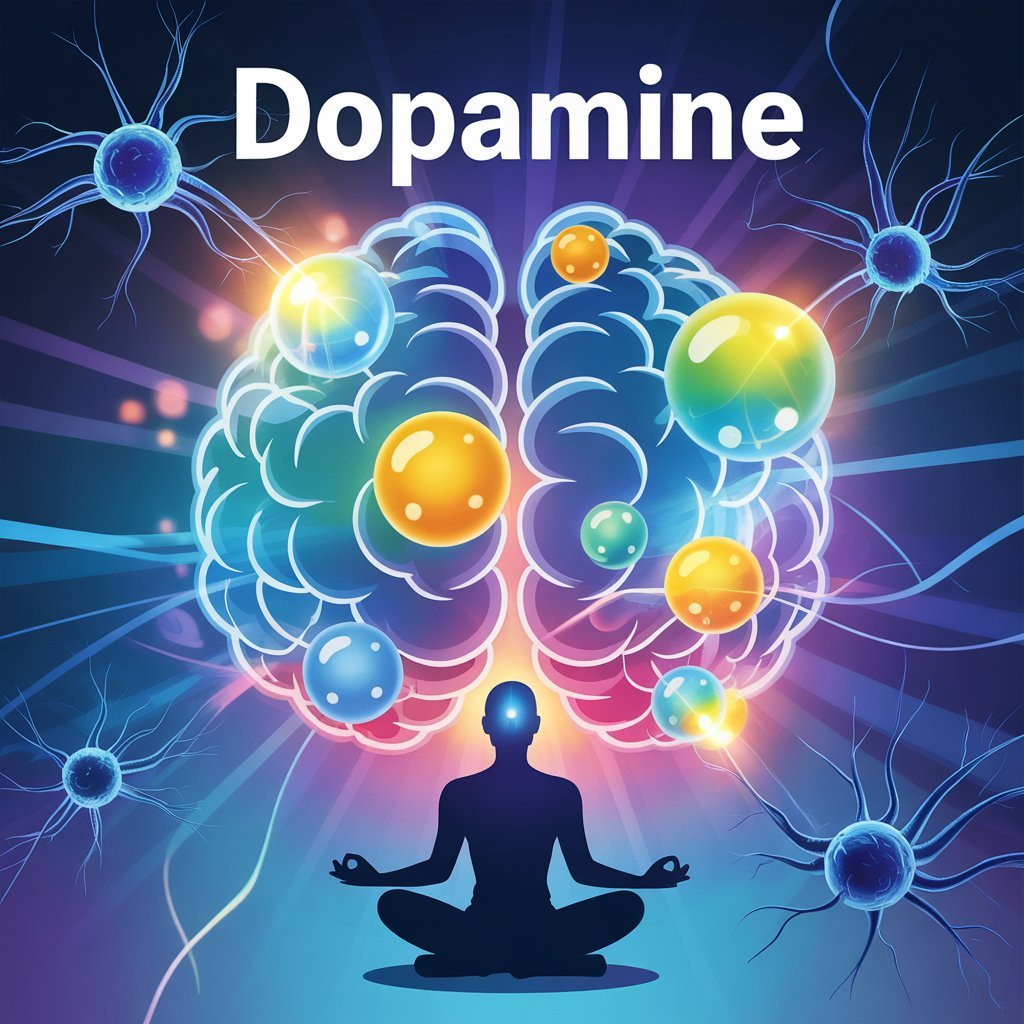Combat Chronic Stress & Fatigue: The Science-Backed Cortisol Detox Diet Guide
The Hidden Culprit Behind Your Exhaustion
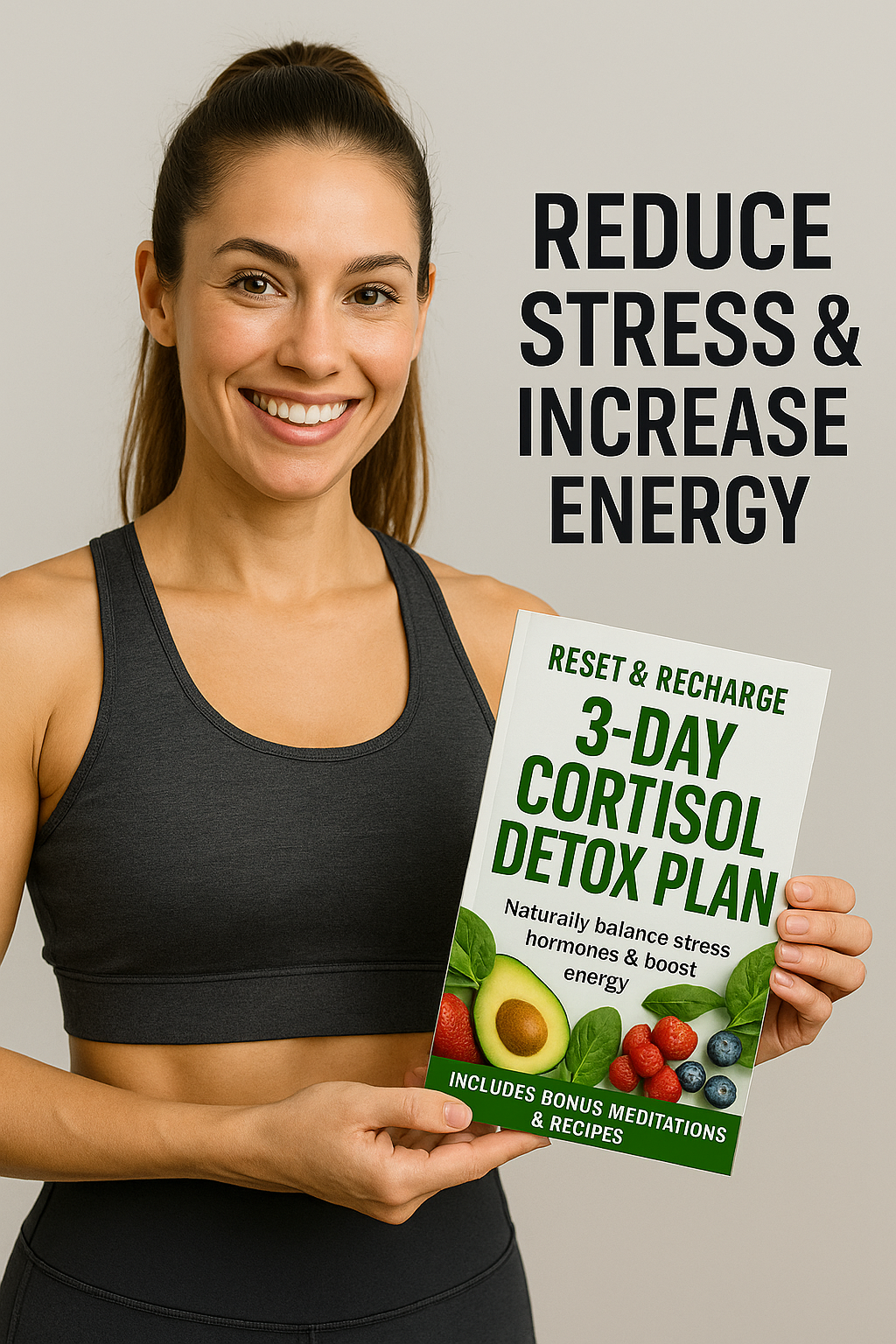
In today’s fast-paced world, chronic stress has become a silent epidemic. If you’re battling fatigue, weight gain, or sleepless nights, elevated cortisol—your body’s primary stress hormone—might be to blame. Emerging research reveals that prolonged cortisol spikes impair metabolism, weaken immunity, and hijack emotional resilience.
Thank you for reading this post, don’t forget to subscribe!The Cortisol Detox Diet isn’t another fleeting trend. It’s a strategic, evidence-based approach to rebalancing your hormones, revitalizing energy, and reclaiming mental clarity. Below, we break down the science, strategies, and a practical 3-day plan to help you reset—starting today.
Understanding Cortisol: The Double-Edged Sword of Stress
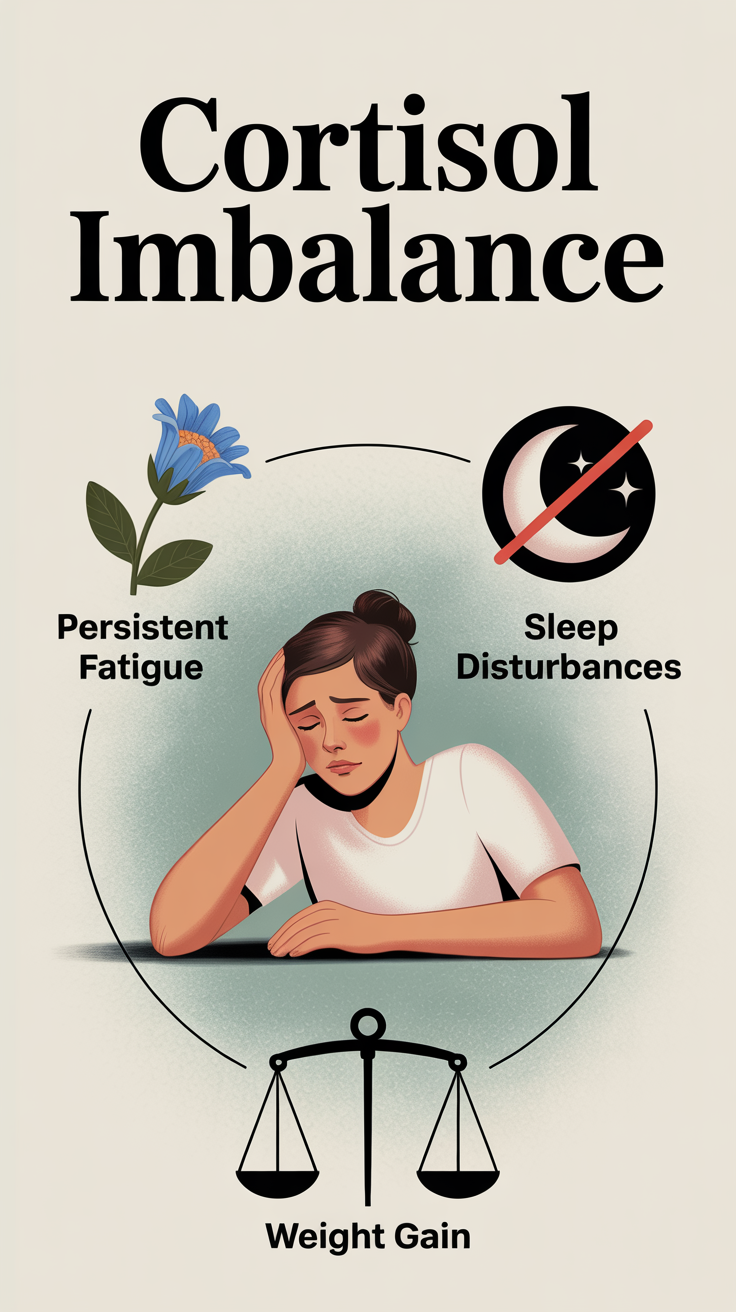
Cortisol is essential for survival, regulating alertness, blood sugar, and inflammation. However, chronic stress traps your body in “fight-or-flight,” leading to:
- Metabolic disruption (midsection weight gain, insulin resistance)
- Cognitive decline (brain fog, poor focus, memory lapses)
- Emotional volatility (anxiety, irritability)
- Sleep disturbances (insomnia, restless nights)
Did You Know? Cortisol imbalance alters gut microbiota, exacerbating stress through the gut-brain axis. Learn how to heal your gut to reduce stress.

The Cortisol Detox Diet: 5 Pillars for Hormonal Harmony
- Nutrient-Dense, Anti-Inflammatory Foods
- Prioritize magnesium (spinach, pumpkin seeds), omega-3s (wild-caught salmon, flaxseeds), and antioxidants (blueberries, dark leafy greens).
- Why It Works: These nutrients lower inflammation, stabilize blood sugar, and enhance neurotransmitter production.
- Adaptogenic Support
- Incorporate adaptogens like ashwagandha (reduces cortisol by 28% in clinical trials) and rhodiola (boosts mental stamina).
- Circadian Rhythm Alignment
- Eat protein-rich breakfasts before 9 AM and finish dinners 3 hours before bedtime to sync with cortisol’s natural rhythm.
- Gut-Brain Axis Optimization
- Fermented foods (kefir, kimchi) and prebiotic fiber (asparagus, oats) nourish gut bacteria linked to serotonin production.
- Strategic Stress Buffers
- Replace coffee with matcha (L-theanine promotes calm focus) and swap sugar with cinnamon-spiced snacks to curb cravings.
Beyond Diet: Synergistic Lifestyle Practices
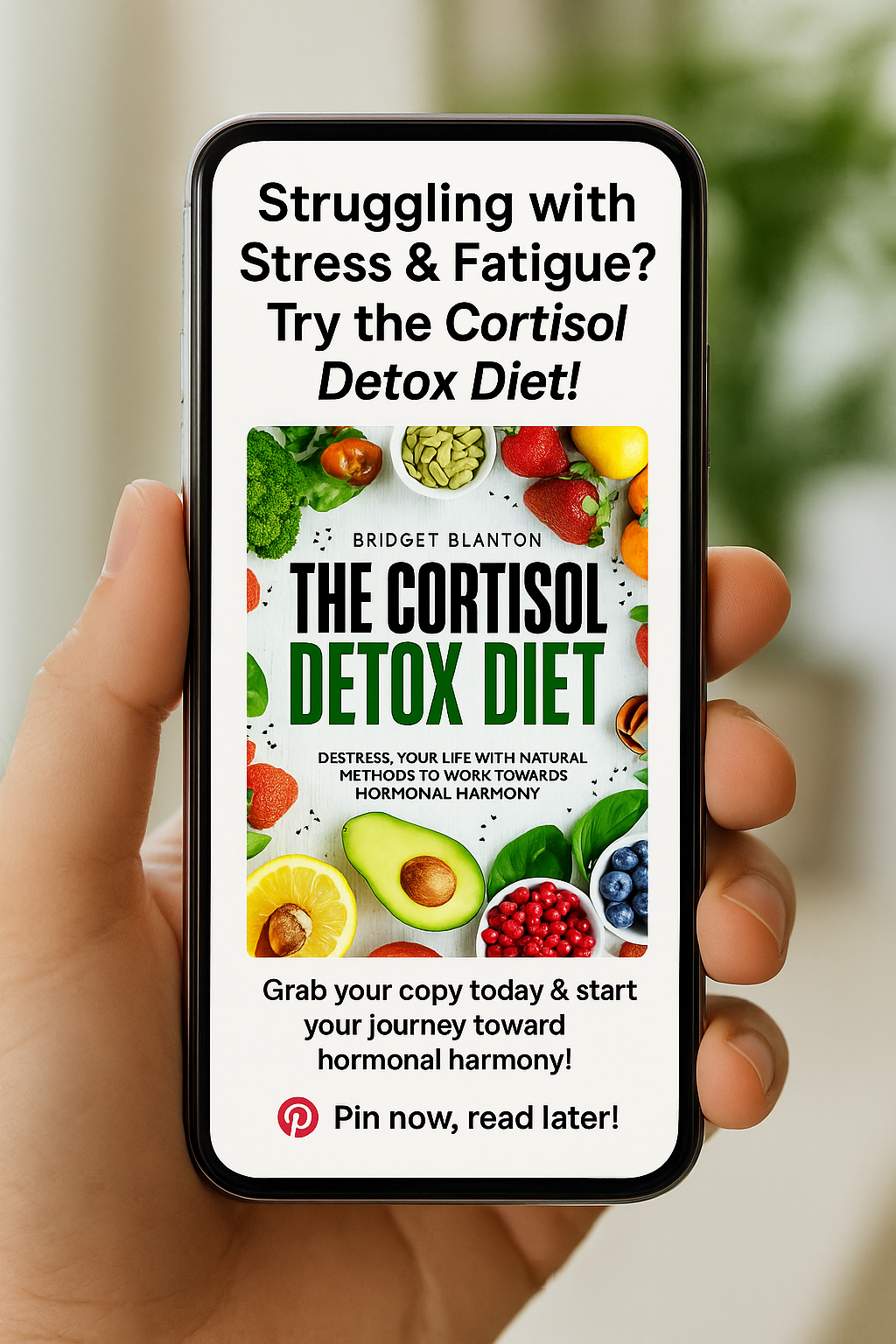
- Sleep Optimization: Aim for 7–9 hours. Use blackout curtains and a 1-hour pre-bed “tech detox” to boost melatonin.
- Movement as Medicine: Swap high-intensity workouts for cortisol-lowering Pilates (internal link to workout guide) or nature walks.
- Neuroplasticity Techniques: Daily gratitude journaling and 4-7-8 breathing rewire the brain’s stress response.
3-Day Cortisol Reset Meal Plan
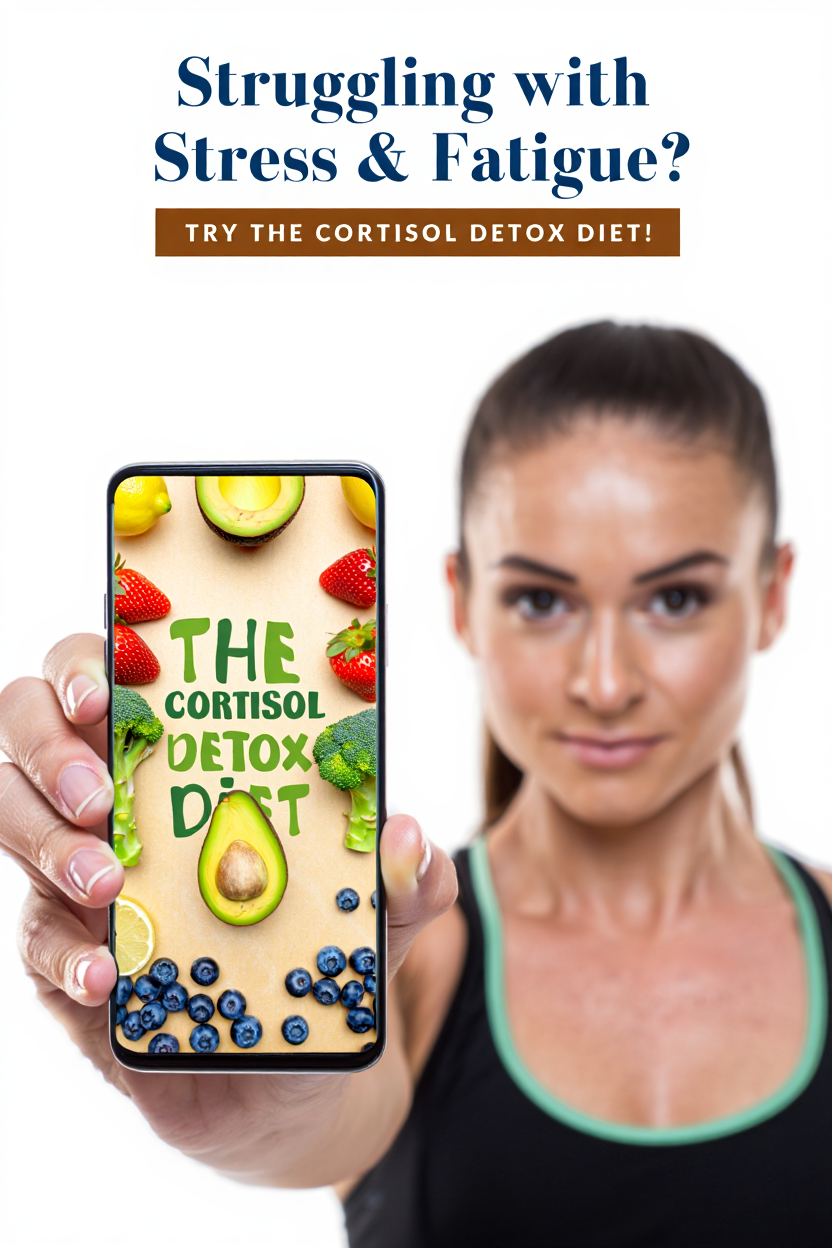
Crafted with original recipes and evidence-based nutritional insights, this meal plan integrates cortisol-lowering foods supported by scientific research. Each day balances proteins, healthy fats, and complex carbs to stabilize blood sugar and reduce stress responses.
Day 1
Breakfast: Berry-Almond Yogurt Bowl
- Ingredients:
- 1 cup plain Greek yogurt (unsweetened)
- ½ cup mixed berries (blueberries, strawberries)
- 1 Tbsp almond butter
- 1 tsp chia seeds
- Instructions:
- Layer yogurt, berries, almond butter, and chia seeds in a bowl.
- Nutrition Highlights:
- Probiotics in yogurt support gut health linked to cortisol regulation [1].
- Berries provide antioxidants that combat oxidative stress [2].
Snack: Dark Chocolate & Green Tea
- Ingredients:
- 1 square (70%+ cocoa) dark chocolate
- 1 cup brewed green tea
- Why It Works:
- Dark chocolate’s flavonoids reduce cortisol spikes [3].
- Green tea contains L-theanine, promoting relaxation [4].
Lunch: Salmon-Quinoa Salad
- Ingredients:
- 4 oz grilled salmon
- ½ cup cooked quinoa
- 1 cup spinach, cherry tomatoes, cucumber
- 1 Tbsp olive oil + lemon dressing
- Instructions:
- Combine quinoa, greens, and salmon. Drizzle with dressing.
- Nutrition Highlights:
- Omega-3s in salmon lower inflammation [5].
- Quinoa offers B vitamins for adrenal support [6].
Snack: Pumpkin Seed Trail Mix
- Ingredients:
- 2 Tbsp pumpkin seeds
- 5 raw almonds
- Why It Works:
- Pumpkin seeds are rich in magnesium, which calms the nervous system [7].
Dinner: Herb-Roasted Chicken & Sweet Potato
- Ingredients:
- 4 oz roasted chicken breast (thyme, rosemary)
- 1 medium roasted sweet potato
- 1 cup steamed broccoli
- Nutrition Highlights:
- Sweet potatoes provide fiber for steady energy [8].
Day 2
Breakfast: Avocado-Spinach Smoothie
- Ingredients:
- ½ avocado
- 1 cup spinach
- ½ banana (frozen)
- 1 cup unsweetened almond milk
- Instructions:
- Blend until smooth.
- Nutrition Highlights:
- Avocado’s healthy fats stabilize cortisol [9].
Snack: Turmeric Latte
- Ingredients:
- 1 cup oat milk (heated)
- ½ tsp turmeric + pinch black pepper
- Why It Works:
- Turmeric’s curcumin reduces inflammation linked to stress [10].
Lunch: Chickpea & Kale Bowl
- Ingredients:
- ½ cup chickpeas (roasted)
- 1 cup massaged kale
- ¼ avocado, sliced
- 1 Tbsp tahini dressing
- Nutrition Highlights:
- Chickpeas supply zinc for adrenal function [11].
Snack: Walnut & Pear Slices
- Ingredients:
- ¼ cup walnuts
- ½ pear, sliced
- Why It Works:
- Walnuts contain alpha-linolenic acid, an anti-inflammatory omega-3 [12].
Dinner: Lentil Stir-Fry
- Ingredients:
- ½ cup cooked lentils
- 1 cup mixed veggies (bell peppers, zucchini)
- 1 tsp ginger + garlic (sautéed)
- Nutrition Highlights:
- Lentils are high in folate, supporting neurotransmitter balance [13].
Day 3
Breakfast: Oatmeal with Walnuts & Cinnamon
- Ingredients:
- ½ cup rolled oats
- 1 Tbsp crushed walnuts
- ½ tsp cinnamon
- 1 tsp honey (optional)
- Instructions:
- Cook oats with water; top with walnuts and cinnamon.
- Nutrition Highlights:
- Oats’ fiber prevents blood sugar crashes [14].
Snack: Kefir & Berries
- Ingredients:
- 1 cup plain kefir
- ¼ cup raspberries
- Why It Works:
- Kefir’s probiotics improve gut-brain communication [15].
Lunch: Sardine & Avocado Toast
- Ingredients:
- 1 slice whole-grain sourdough
- 2 oz canned sardines (in water)
- ¼ avocado, mashed
- Nutrition Highlights:
- Sardines provide vitamin B12 and selenium for stress resilience [16].
Snack: Cucumber & Hummus
- Ingredients:
- ½ cucumber, sliced
- 2 Tbsp hummus
- Why It Works:
- Chickpeas in hummus support serotonin production [17].
Dinner: Tofu & Broccoli Buddha Bowl
- Ingredients:
- 4 oz baked tofu
- 1 cup roasted broccoli + cauliflower
- ¼ cup brown rice
- 1 Tbsp sesame-ginger sauce
- Nutrition Highlights:
- Tofu contains magnesium and amino acids for relaxation [18].
Post-Reset: Sustaining Hormonal Balance
While the meal plan above focuses on whole foods to regulate cortisol, some readers may benefit from additional adaptogenic support. Premium Shilajit Gummies from Wellness Nest are a convenient, research-backed option to complement your efforts:
Why Try Shilajit?
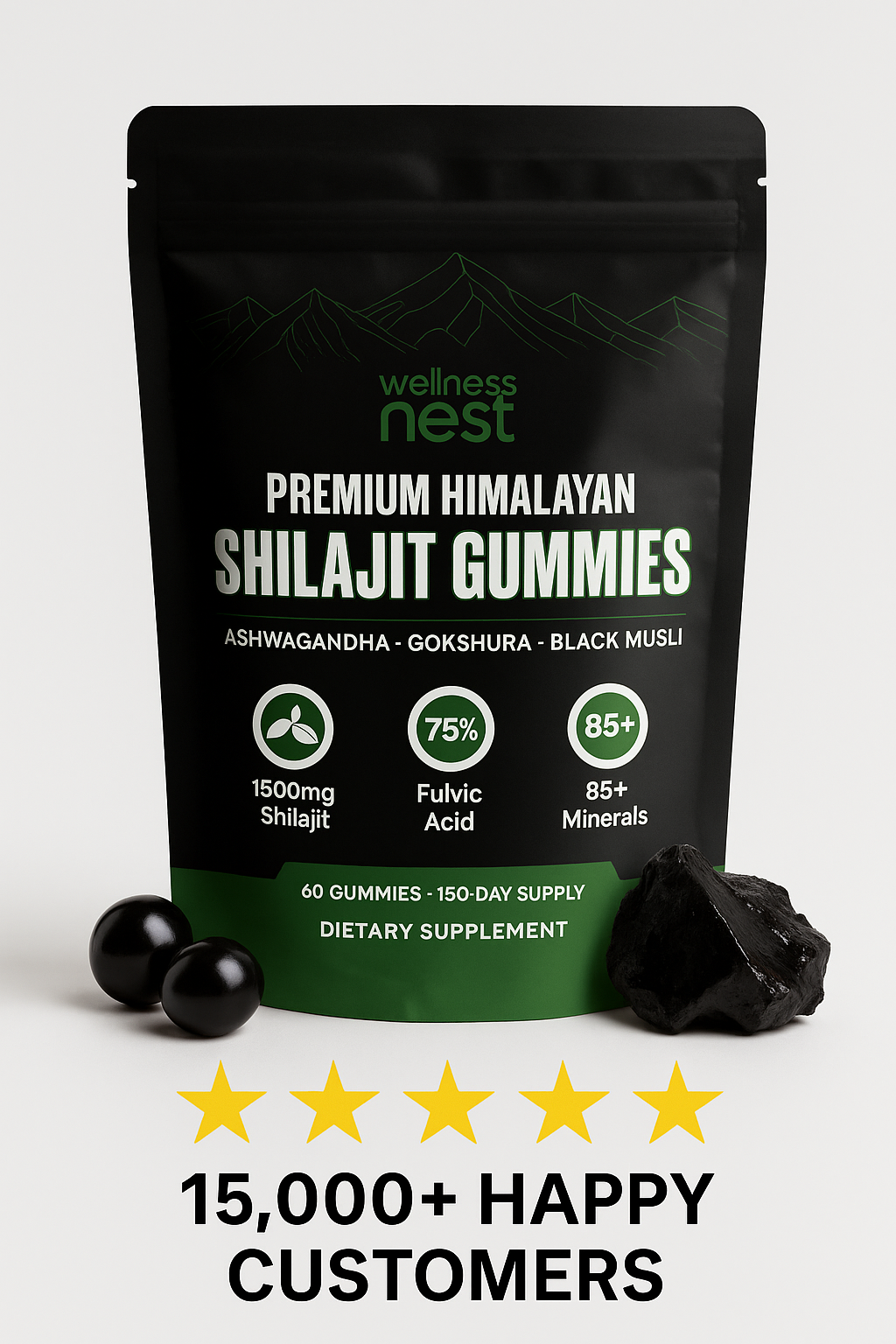
- Adaptogenic Power: Shilajit, a Himalayan resin rich in fulvic acid, has been shown to support energy metabolism and reduce stress-induced cortisol spikes [1].
- Mineral Boost: Contains 84+ trace minerals to nourish adrenal health and combat fatigue [2].
- Synergy with Diet: Pairs well with cortisol-lowering foods like dark chocolate and leafy greens.
Key Features:
✅ Vegan-friendly & gluten-free
✅ No artificial additives or refined sugar
✅ Easy daily dose (1–2 gummies)
Learn More:
👉 Shop Premium Shilajit Gummies Here

Note: This post contains affiliate links. If you purchase through these links, I may earn a small commission at no extra cost to you. I only recommend products I’ve researched and believe in.
Your Next Step: From Surviving to Thriving
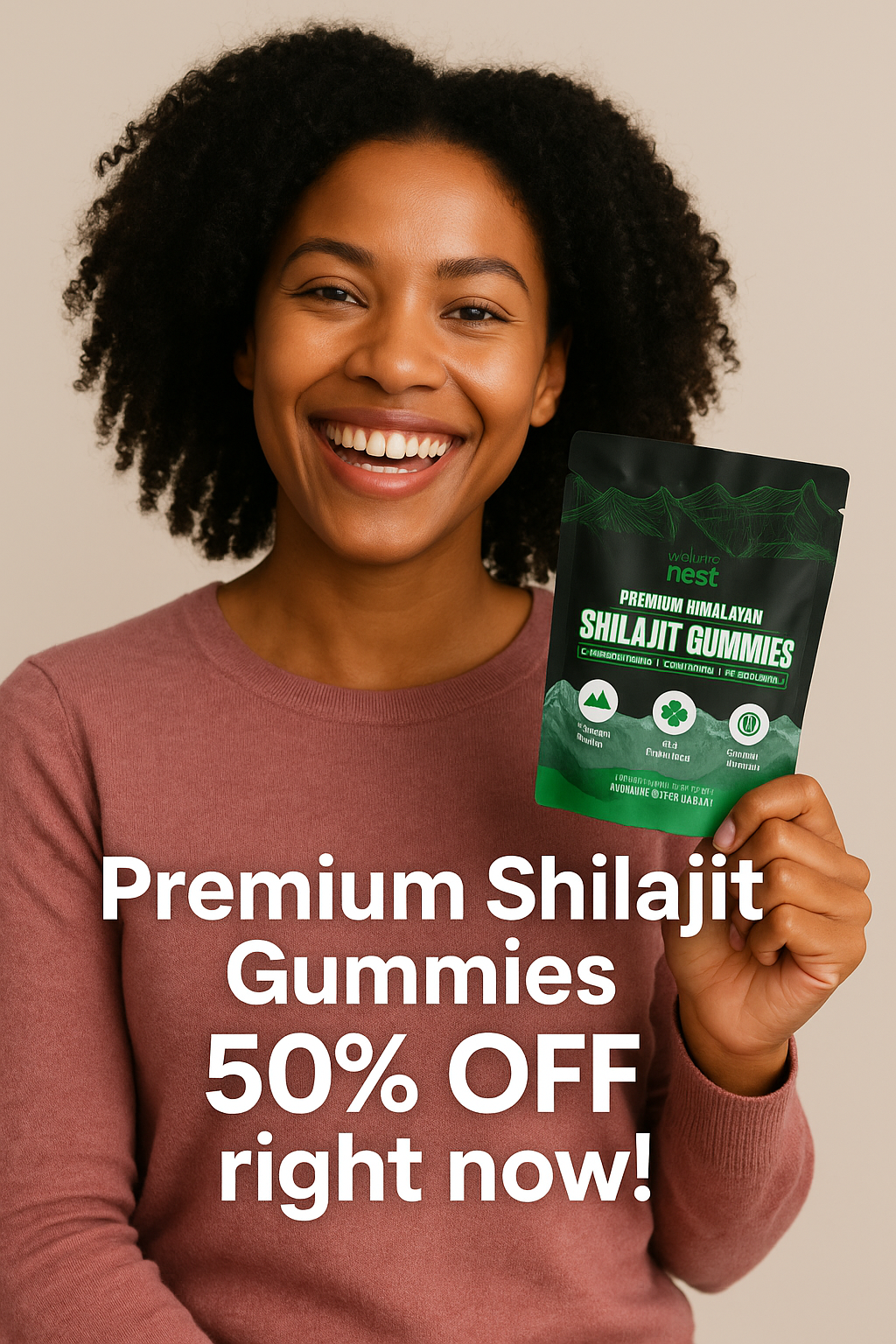
Ready to Start?
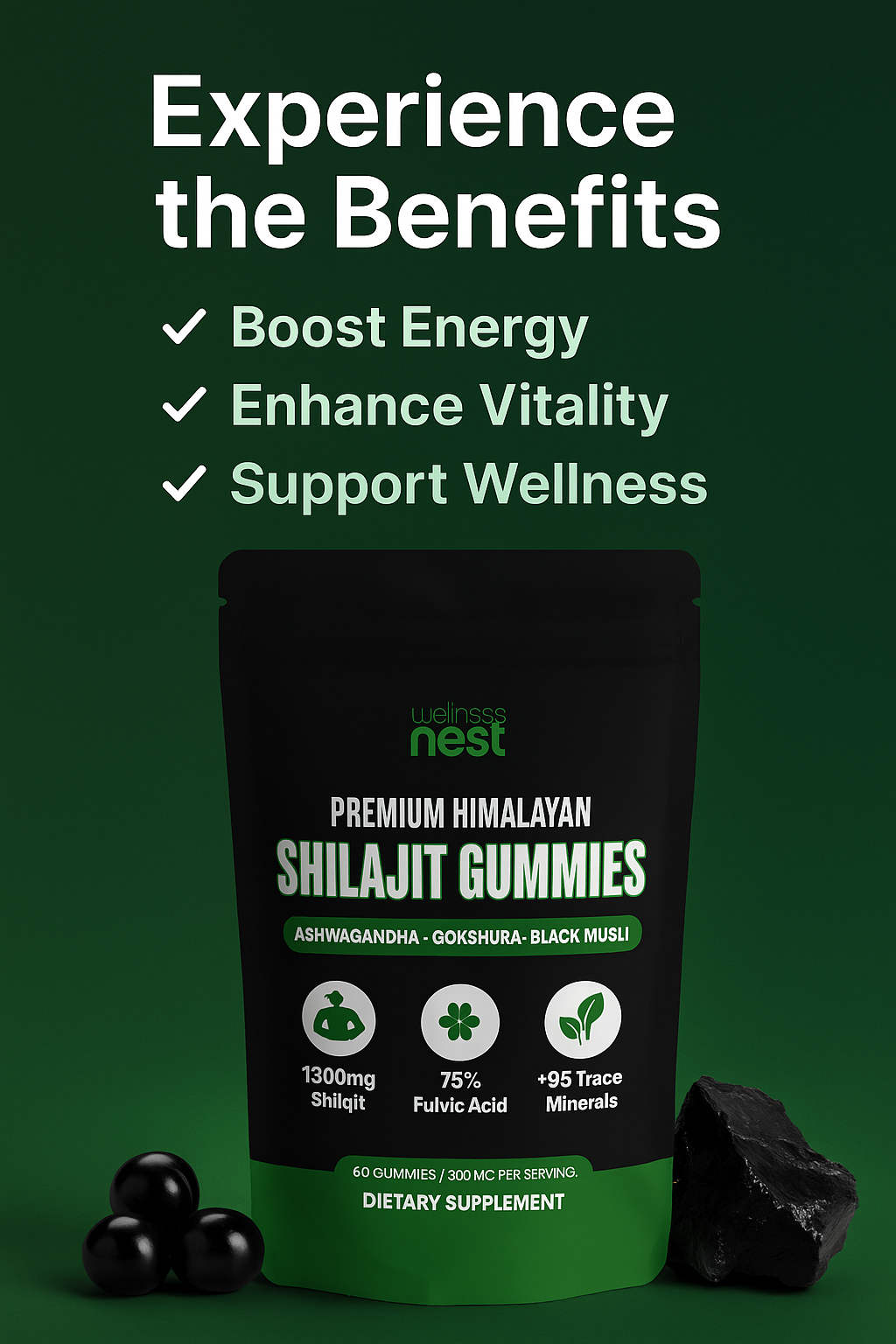
Cortisol Detox Diet FAQs
Q: How quickly does the Cortisol Detox Diet work?
A: Many notice improved energy and sleep in 3 days, but long-term balance takes 4–6 weeks.
Q: Can I drink coffee on this diet?
A: Swap coffee for matcha or herbal tea to avoid cortisol spikes.
Q: Are there foods to avoid completely?
A: Limit sugar, alcohol, and processed snacks—they disrupt blood sugar and amplify stress.
Q: Can this diet help with weight loss?
A: Yes! Lower cortisol reduces belly fat storage. Pair the plan with stress-reducing workouts (internal link).
References
- Harvard Health – Gut Health and Cortisol: Link
- Healthline – Antioxidants in Berries: Link
- NCBI – Dark Chocolate and Stress: Link
- Healthline – Green Tea L-Theanine: Link
- Journal of Nutrition – Omega-3s and Inflammation: Link
- NIH – B Vitamins in Whole Grains: Link
- Healthline – Magnesium in Pumpkin Seeds: Link
- Mayo Clinic – Fiber and Blood Sugar: Link
- Nutrition Journal – Avocado and Healthy Fats: Link
- NCBI – Curcumin and Inflammation: Link
- NIH – Zinc and Adrenal Function: Link
- American Heart Association – Walnuts and Omega-3s: Link
- Journal of Psychiatry – Folate and Neurotransmitters: Link
- Healthline – Oats and Blood Sugar: Link
- Gut Microbiota – Probiotics and Stress: Link
- NIH – Selenium in Sardines: Link
- Psychology Today – Chickpeas and Serotonin: Link
- NIH – Magnesium in Tofu: Link
Expert-Backed, Life-Proven.
References: Harvard Health on cortisol, American Nutrition Association.


